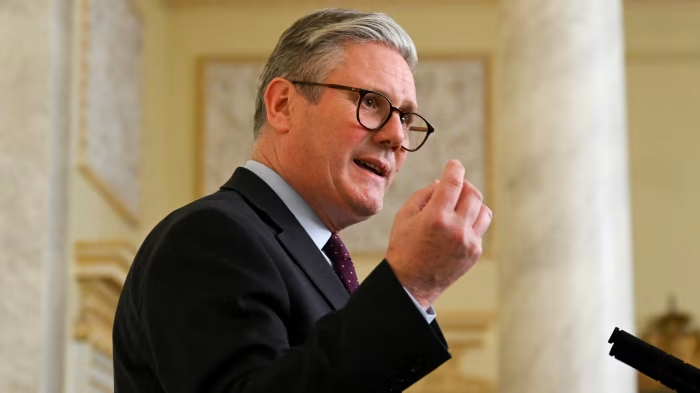Introduction
As 2025 unfolds, the United Kingdom finds itself under a new kind of leadership. Prime Minister Keir Starmer, who brought Labour back into power after over a decade of Conservative rule, has embarked on an ambitious mission: to restructure Britain’s institutions, restore its economy, and recalibrate its post-Brexit relationship with Europe. But as Starmer attempts to push through deep reforms at home, he walks a political tightrope—balancing public expectations, fiscal constraints, and the shifting dynamics of European geopolitics.
Institutional Reforms: “Project Chainsaw”
Starmer’s government has wasted little time in pushing forward its domestic agenda. Central to his reforms is what some insiders call “Project Chainsaw”—a wide-ranging restructuring of Britain’s public sector, civil service, and welfare programs. In early 2025, the government announced plans to scrap the NHS England management board and streamline multiple layers of bureaucracy. These measures aim to increase efficiency and redirect funds toward frontline services, but they’ve also triggered alarm among public sector unions and some within Labour’s own ranks.
According to Politico Europe, Starmer’s push to cut waste is part of a broader effort to rewire Britain’s institutions, with Whitehall departments undergoing cross-cutting audits to reduce duplication and spending waste.
The reforms extend to welfare. Starmer has proposed tightening disability benefits, targeting savings of over £5 billion annually by the end of the decade. This has provoked backlash, with critics warning of a return to austerity under a different name. Yet Starmer insists the aim is to make the system “fairer and more sustainable.”
Europe Revisited: A Pragmatic Rapprochement
Perhaps most striking is Starmer’s approach to foreign policy—particularly toward the European Union. In contrast to his predecessors, he is actively pursuing a reset in EU-UK relations. While reaffirming that Britain will not rejoin the single market or customs union, Starmer has sought closer cooperation on security, trade, and research.
According to The Guardian, Starmer is working toward a formal EU-UK defense and security pact, potentially granting the UK access to a new €150 billion EU defense investment fund.
Starmer’s government also rejoined Horizon Europe, the EU’s flagship science program, and reopened talks to ease trade frictions across key sectors. These steps have been cautiously welcomed in Brussels and signal a shift from Brexit-era hostility to strategic cooperation.
Challenges at Home
Despite a decisive election victory, Starmer’s mandate is already being tested. Public patience is thin, and trust in political institutions remains low. His first months in office were marred by protests over welfare reforms and early ethical controversies within his cabinet.
As reported by AP News, polling suggests Starmer’s approval ratings dipped slightly in early 2025, though Labour maintains a comfortable lead overall.
Economic constraints are another hurdle. With sluggish growth, high inflation, and a strained public budget, Starmer’s government has limited room for bold spending. Critics argue that structural reform without fiscal space could backfire politically if results are slow to materialize.
International Positioning: Between Washington and Brussels
On the global stage, Starmer must also navigate a shifting transatlantic landscape. The return of Donald Trump to the White House has jolted European capitals. Trump’s dismissive tone toward NATO and transactional foreign policy have made the UK’s traditional role as a transatlantic bridge more difficult.
Starmer has responded by quietly deepening ties with European counterparts. A UK-EU defense pact would not only strengthen European autonomy but also allow Britain to stay relevant in shaping regional security, especially as tensions with Russia continue. As the war in Ukraine drags on, the UK has reaffirmed its commitment to supporting Kyiv, while also aligning itself more closely with the EU’s long-term security architecture.
Conclusion
Keir Starmer’s strategy for Britain is clear: modernize domestic institutions and mend bridges with Europe without reopening the Brexit wound. His gamble lies in delivering complex reforms quickly while managing political backlash and economic limitations. If successful, he could redefine Britain’s role in Europe and set the stage for long-term renewal. If not, his project risks being remembered as an overreach in a time of deep fatigue and division.



